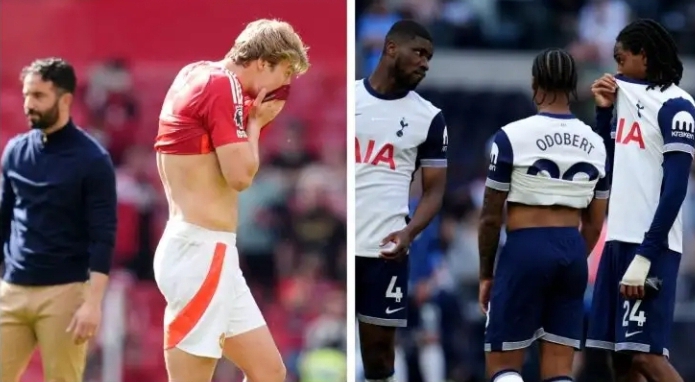There was a time when playing on a Thursday night was considered a mark of shame—a byword for failure to qualify for the Champions League. The Europa League was derided as an inconvenient distraction, detracting from the “real” business of securing a higher Premier League finish and the associated financial rewards, only to squander those riches on middling talent.
Manchester United and Tottenham’s Europa League Final Run Warrants No Applause Amid Premier League Imbalance


Back then, prominent figures of the English game, often sitting with performative disdain, would publicly scorn the competition. Teams would field weakened sides with the apparent aim of a swift exit. As Harry Redknapp once quipped:
“It’s one of those competitions that teams get in and then they try to get out of.”
Redknapp and others bemoaned the supposed strain of Thursday-Sunday schedules, arguing—without credible evidence—that it disrupted players’ “biorhythms.” Foreign clubs somehow managed, but English teams seemed perennially too fragile.
This dismissive attitude was shared by fans, who often ranked trophies based on arbitrary hierarchies. The Europa League never fared well in these assessments—until now.
Now that two English clubs are in the final, the narrative has changed. Suddenly, it’s a competition worthy of respect—unlike when Porto faced Braga or Sevilla claimed three consecutive titles. Perhaps this renewed reverence is linked to the fact that the manager behind Sevilla’s successes now plies his trade in the Premier League. Such is the mechanism of English exceptionalism.
Some humour has emerged from the fact that the finalists are Manchester United and Tottenham Hotspur—two clubs in a state of disarray. Yet, despite their poor form, the Premier League ensures even its worst performers receive upwards of £100 million annually—financial muscle that continental rivals cannot hope to match.
As any regular observer of European football will attest, many other leagues offer greater entertainment and boast elite players who shun English clubs, despite the financial incentive. They recognise, rightly, that money isn’t everything. However, the economic gulf is undermining the integrity of European competition.
Take Tottenham’s match against Bodø/Glimt: the Norwegian side’s most valuable player was reportedly worth €6 million, while Spurs had 26 players valued above that. This staggering imbalance inevitably skews results. If Serie A clubs enjoyed such financial superiority, English fans would cry foul. The issue is not the existence of disparities, but the magnitude of them.
The Premier League’s financial dominance is having a profound impact on European competitions—especially outside the elite echelons of the Champions League. Even underperforming English clubs are now out of reach for the majority of Europe’s teams. Is this really the future we want?
When Chelsea brushed aside Djurgårdens, the result was as predictable as it was uninspiring. It’s no different than reaching an FA Cup final after beating only lower-league opposition—few would view it as a genuine achievement.
Similarly, when West Ham lifted the Europa Conference League, their only comparable opponent in terms of financial power was Fiorentina in the final. Was that triumph truly as significant as some made out? Imagine winning the FA Cup by beating League One sides before facing a mid-table Championship team in the final—it would hardly be heralded as a monumental feat.
If money really matters, then Europa and Conference League finals should now be expected to feature English clubs—and perhaps the Champions League as well. But where’s the joy in that?
Unpredictability is the essence of football, yet the growing financial chasm is making outcomes ever more foreseeable. As this imbalance intensifies, so too does the argument for a breakaway European super league—one where at least financial parity exists.
UEFA continues to present these tournaments as credible, competitive events, but that narrative is becoming harder to sustain. Perhaps predictability is the goal—after all, it brings stability and investor confidence. But it also kills the competition.
The so-called “Thursday night curse” may have lifted for Premier League clubs—but only because their financial might has removed the challenge altogether. And that’s not something that deserves celebration.

 বাংলা
বাংলা  Spanish
Spanish  Arabic
Arabic  French
French  Chinese
Chinese 
